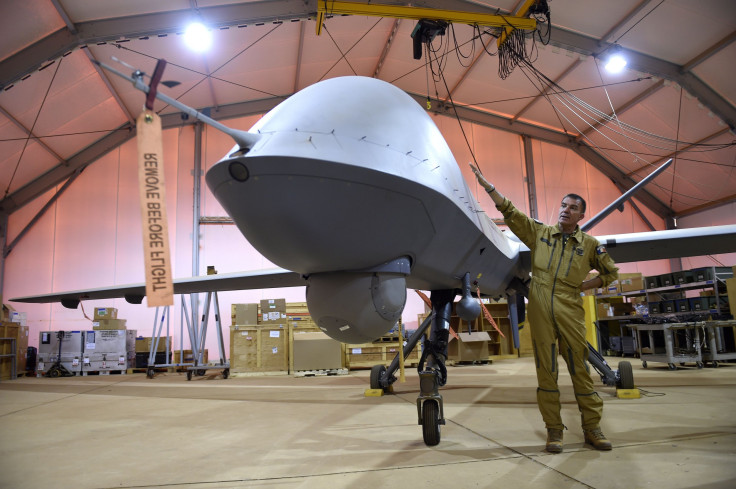UK To Double Size Of Drone Fleet And Boost Special Forces Equipment For ISIS Fight

The UK will more than double its fleet of remotely piloted drones in a bid to step up the fight against Islamic militants and bolster security in Britain, Prime Minister David Cameron has announced. Cameron, speaking at the start of his Conservative Party's annual conference, also revealed that his government would upgrade the equipment provided to the U.K.'s Special Forces.
The move means that the number of Royal Air Force (RAF) drones -- otherwise known as Remotely Piloted Air Systems (RPAS) -- will surpass 20 and will be upgraded with the latest technology. The government also claimed the increased fleet will substantially enhance the U.K.'s global intelligence, surveillance and reconnaissance capabilities.
"National security is the first priority of this government. We are taking action both at home and abroad so we address terrorism from every angle," Cameron said. "As part of the defense review, we will be more than doubling our drone fleet. This will be combined with increasing the capacity of our special forces, so that the country remains ready to address any threats to our nation's security."
Legal action
The upgrade announcement comes after Cameron revealed in the House of Commons that an RAF drone strike had killed two Islamic militants from Britain -- Reyaad Khan, 21, and Ruhul Amin, 26 -- in Syria. The Raqqa attack, which was launched Aug. 21, was controversial because Cameron had previously promised to put a vote before parliament over military intervention in the Middle Eastern country.
But Cameron told MPs on Sept. 7 that the move was "an act of self-defense" and said that he had consulted the U.K. Attorney General over the legality of the strike.
"We should be under no illusion. Their intention was the murder of British citizens. So on this occasion we ourselves took action," he said. "I can inform the House that in an act of self-defense and after meticulous planning Reyaad Khan was killed in a precision air strike carried out on August 21 by an RAF remotely piloted aircraft while he was traveling in a vehicle in the area of Raqqa in Syria."
But the British government now faces legal action from law firm Leigh Day, human rights charity Reprieve, and Green Party leader Caroline Lucas and grandee Baroness Jenny Jones.
"The government appears to have adopted a 'Kill Policy' in secret -- without parliamentary debate or the prospect of proper independent scrutiny. Sanctioning lethal drone attacks on British citizens is a significant departure from previous policy, as well as potentially unlawful, and it's deeply concerning that it has occurred without appropriate oversight," Lucas said.
"By refusing to publish the legal basis for these attacks, the government has created a legal and accountability vacuum," she stated. "We need to be able to determine whether the attacks -- and what they signify in terms of government policy -- meet the robust conditions set out in international and domestic law."





















